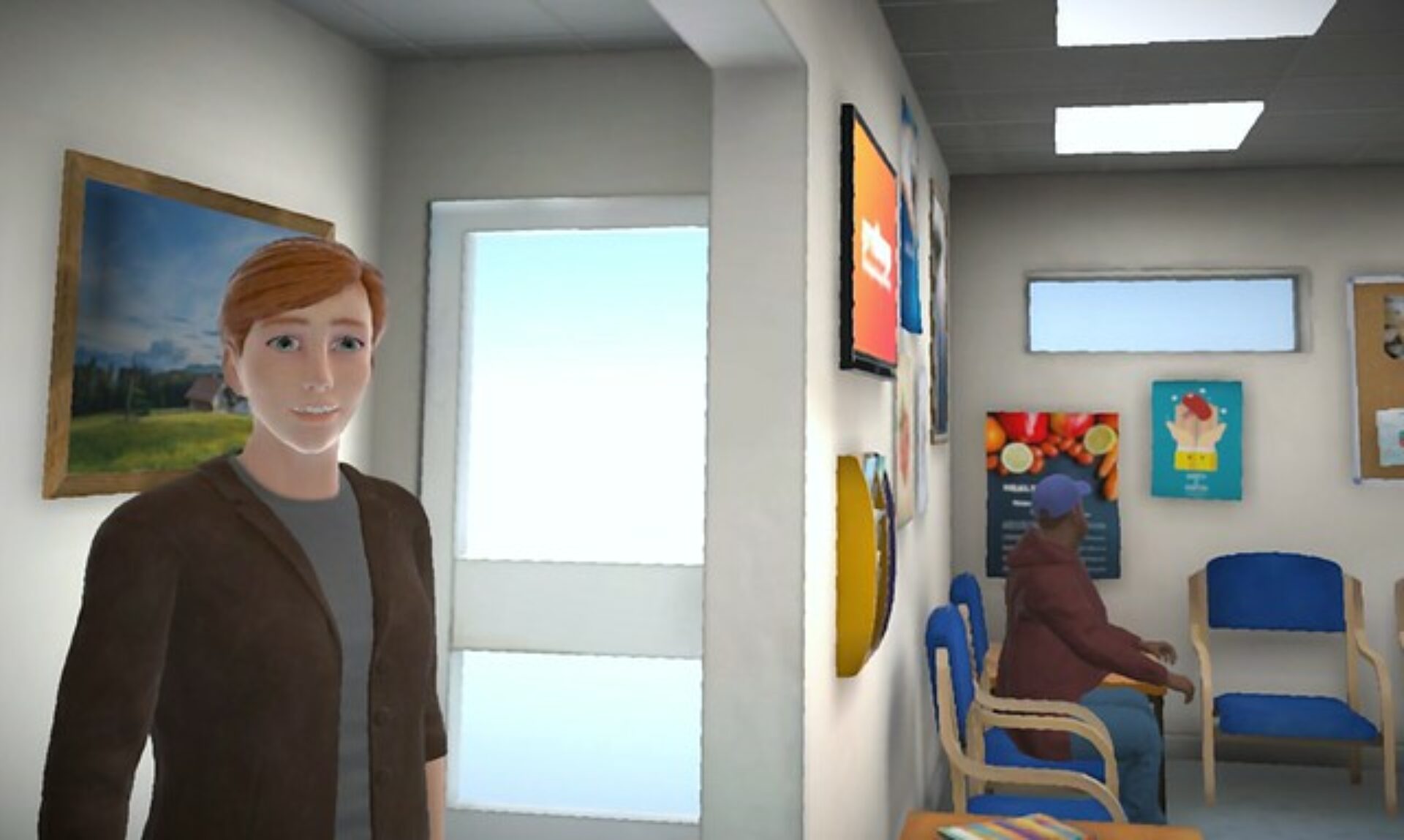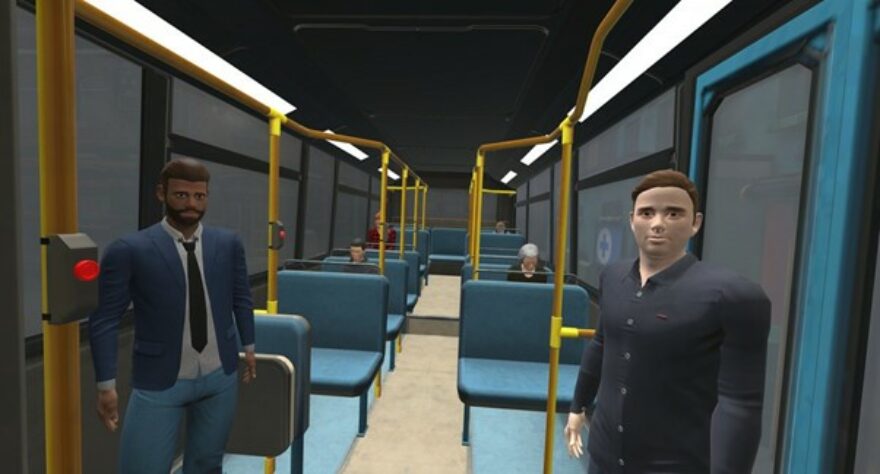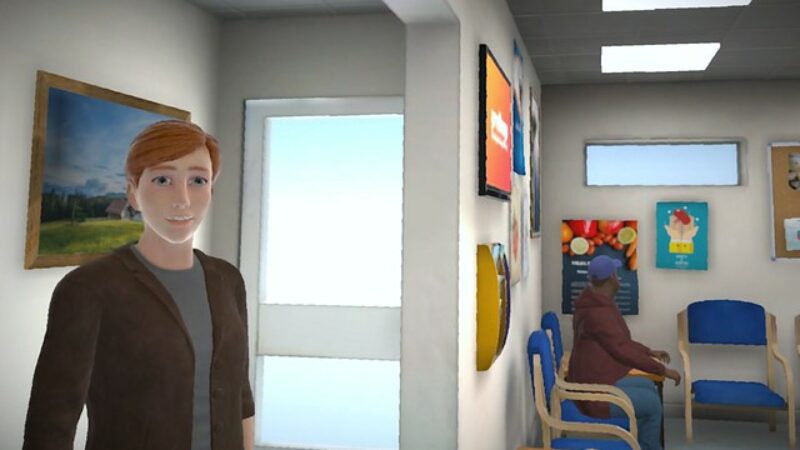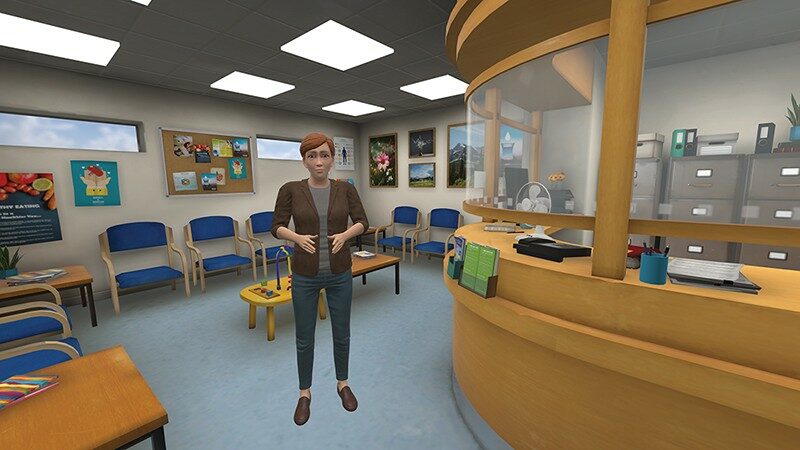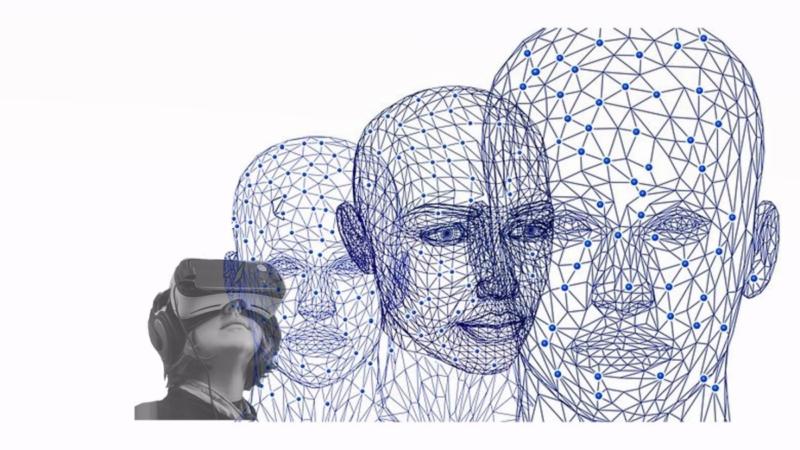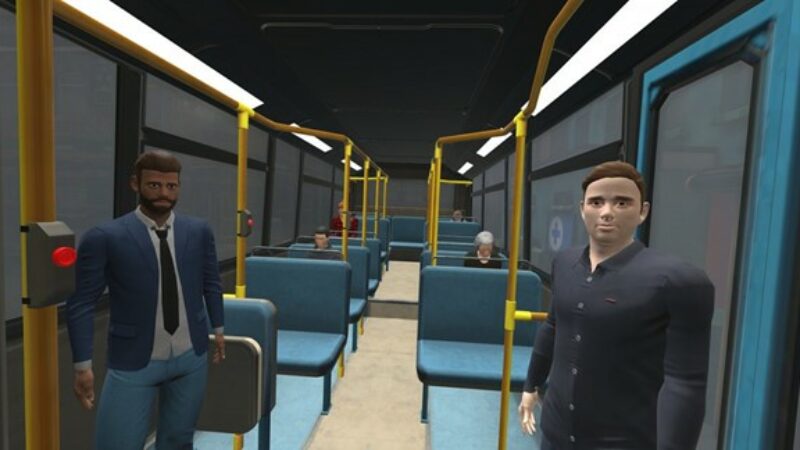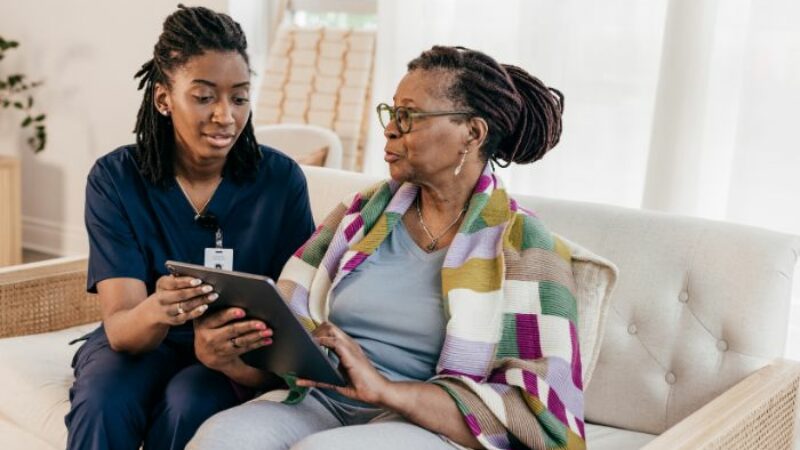Project Overview
Virtual reality (VR) has been suggested as a type of therapy for some people affected by psychosis, involving them wearing a headset and interacting with computer-generated people or avatars.
Funded by the National Institute of Health Research (NiHR), Professor Daniel Freeman and his team at the University of Oxford worked with partner organisations to test the effectiveness of VR therapy for people with psychosis via a clinical trial.
In gameChange therapy, a virtual coach guided users through their thoughts, feelings, and responses in certain social situations. In this study, people with psychosis, designers, researchers and NHS staff worked together to develop the VR therapy to ensure the best user experience.
Half the participants received their usual treatment and half received six sessions of the new VR therapy. Their physical activity levels, agoraphobia, distress levels, and quality of life were assessed before and after treatment.
The team also analysed the cost-effectiveness of the treatment and produced a commissioning case and implementation toolkit for the therapy to be used in the NHS.
Read more on the gameChange website.

Project details
Many people experiencing psychosis find social situations difficult, which means they may withdraw from everyday activities. This isolation and lack of activity means they then often develop physical health issues and their mental health deteriorates.
Only 5% of people experiencing psychosis currently receive psychological therapy, and that therapy usually doesn’t directly address social withdrawal.
This study used cutting-edge VR technology to let people practise skills in a computer-simulated world, as a way of helping them reduce problems in real life.
This, in turn, could help reduce anxiety and paranoia in people experiencing psychosis, as well as improving their engagement in everyday activities.
McPin facilitated the service user involvement for this study through a Lived Experience Advisory Panel (LEAP) of 11 service users. The LEAP provided advice and assistance to the wider study team.
McPin and the LEAP also worked with the Royal College of Art, who ran workshops to re-design the VR environments.
A McPin research team, which included peer researchers, led a qualitative interview study with trial participants to explore their experience of the therapy and what they think the impact has been on their lives.
Watch the video below to hear from LEAP members.
The trial found that people who received the gameChange therapy had greater reductions in their agoraphobia and distress levels than people who continued with their usual treatment.
It also found that people who were the most socially avoidant – for example, struggling to leave their house – benefited the most from the therapy, and that the improvements were still there six months later.
Read the Lancet Psychiatry paper about the trial, and the qualitative paper here:
A Safe Place to Learn: Peer Research Qualitative Investigation of gameChange Virtual Reality Therapy
You can see our summary of the results here.
Read a blog about Alex’s experiences as a peer researcher on the project.
In November 2023, gameChange was approved for use in NHS mental health services.
The qualitative study into trial participants’ experiences has been submitted for peer review. Visit the gameChange website for more information.
For more information on the project please email [email protected].
Project resources

A gameChange case study: Lived experience involvement

Automated virtual reality therapy to treat agoraphobic avoidance and distress in patients with psychosis (gameChange)

A Safe Place to Learn
Related blogs
Related projects
Work with us
We are always excited to hear from others who want to collaborate on mental health research. From delivering peer research to helping you with public involvement strategies and providing training, get in touch to chat.
